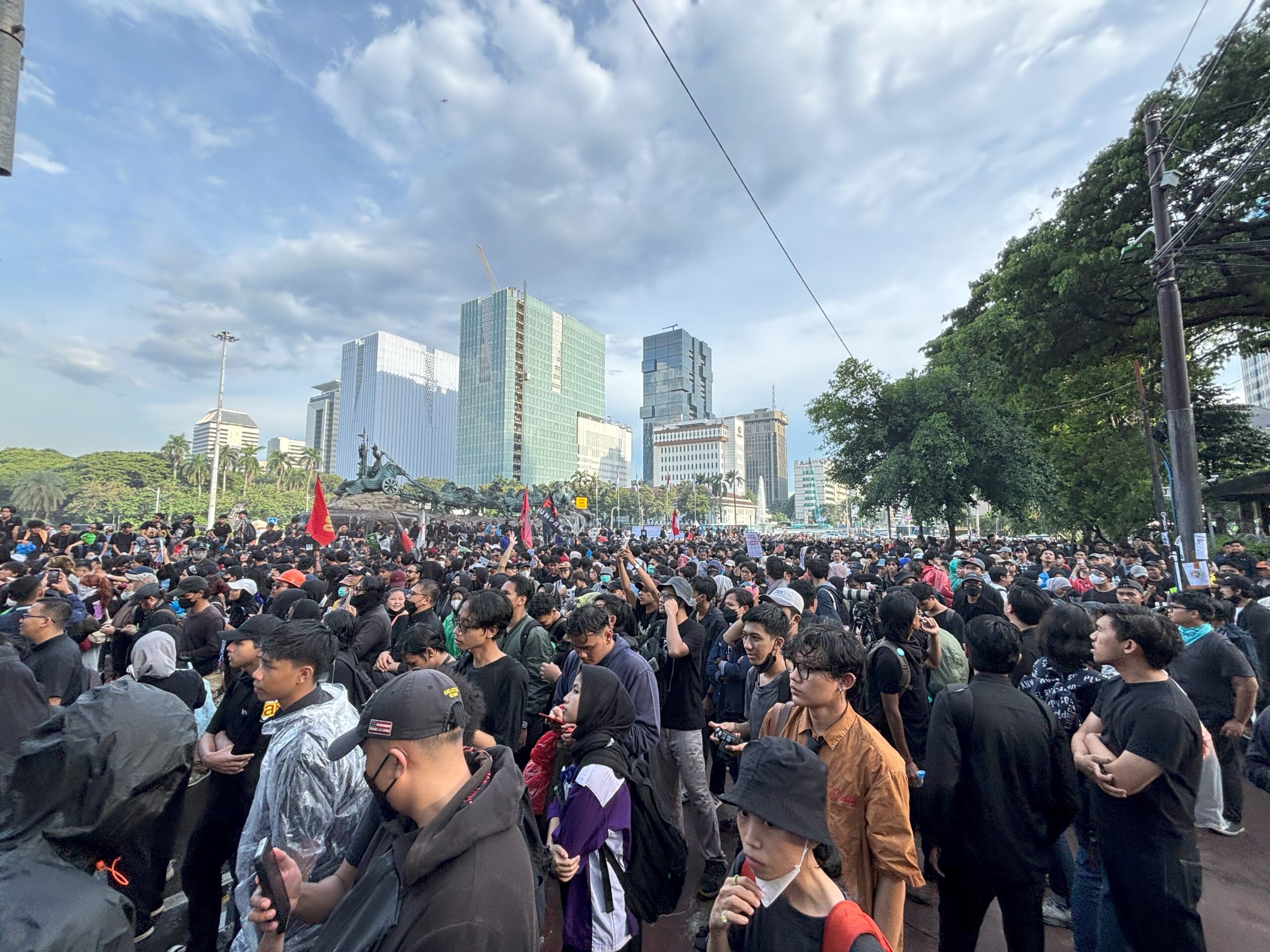In the last 18 months, the International Criminal Court has issued an arrest warrant for Russian President Vladimir Putin, and sought an arrest warrant for Israel Prime Minister Benjamin Netanyahu. Does the failure to arrest or prosecute former Sudan President Omar Al-Bashir offer any insights to the likelihood of prosecuting Putin or Netanyahu?
For much of the modern period, the right of heads of state to immunity from prosecution in foreign courts has been an important underpinning of international order. But this norm exists in tension with a newer, emerging norm that demands that heads of state be held accountable for the atrocities they authorise and oversee—a powerful social and legal norm that requires actions often in direct conflict with the concept of immunity. This tension has become even more pronounced in the period following the end of the Cold War, as the establishment of the two UN-backed ad-hoc tribunals and the International Criminal Court (ICC) entrench the concept of non-impunity in highly institutionalised treaty and case law.
In the face of conflicting obligations like those produced by the immunity and non-impunity norms, states must make difficult choices with difficult consequences. How do we understand non-compliance in the context of competing obligations, and what happens to the status of the norms or obligations that lose out? As scholars of international relations and international law turn their attention towards the effects of norm conflicts, contestation, non-compliance, and backlash on the legitimacy of international legal regimes, questions concerning the intentions behind acts of compliance or non-compliance can serve to highlight not only why an actor might choose one particular norm but what that choice means for the alternatives.
We focused on South Africa’s decision not to arrest the then-President of Sudan, Omar al-Bashir, in the face of conflicting pressures from multiple international and domestic actors, and argue that this resulted in what we call “collateral noncompliance”: noncompliance with one obligation as a product of compliance with another. In the case of South Africa, by choosing not to arrest al-Bashir, South Africa complied with the head of state immunity norm, using third-party norms of African solidarity to resolve the conflict with the non-impunity norm and guide its decision. But in doing so, as a State Party to the Rome Statute, it also, in effect, violated the non-impunity norm, even if the aim was not necessarily to reject or undermine the norm. In this sense, collateral non-compliance is a secondary type of non-compliance—a side-effect of prioritising another norm—rather than a direct challenge to the substantive legitimacy of the norm. Like collateral damage in military terminology, this behaviour is not specifically intended as the primary outcome—effort is usually taken to avoid it—but it is not an accident either. Prioritising one obligation over another implies conscious awareness of the choice, but where malevolent non-compliance or contestation indicates deliberate rejection, collateral non-compliance is better understood as an accepted cost calculation. Non-compliance in these circumstances is therefore not a desired outcome, but it is accepted by the actor as necessary in the context of prioritising another course of action. It is thus a corollary to the concept of norm conflict, which partially implies that prioritisation of one norm leads to neglect of the other. But where norm conflict research has focused so far on which norm “wins” and how conflicts are resolved or managed, the concept of collateral non-compliance helps us to reflect on the intent behind the decision and the consequences for the norm that “loses.”
We therefore define collateral non-compliance as intentional but not malicious non-compliance with one obligation as a product of compliance with another. It differs from capacity-based non- or partial-compliance where an actor wants to fulfil the obligation but lacks the resources or ability to do so, because the actor could comply if they did not choose to defer to the competing obligation. It also differs from intentionally deviant forms of non-compliance like evasion, denial, and rhetorical adaptation, as the aim is not to deliberately shirk an obligation, even if that is the effect in practice. There may, however, be similarities in the rhetoric and strategies used in each, especially if actors see claiming non-compliance as a side-effect of other actions as a plausible evasive strategy. Finally, collateral non-compliance is distinct from applicatory contestation; both concepts focus on situations where an actor believes a norm is not appropriate or relevant to a particular context, but where applicatory contestation speaks directly to the unsuitability of the contested norm, collateral non-compliance follows from support for the competing obligation. In other words, collateral non-compliance may be an effect of applicatory contestation, a product of an unsuccessful attempt to adapt or reconcile conflicting obligations and the requirement to ultimately pick one obligation over another.
In a field already crowded by multiple labels for different forms of compliance and non-compliance, what is the value added by identifying collateral non-compliance as a distinct concept? How does collateral non-compliance enhance our understanding of actors’ interactions with international law in general? For starters, it adds to our ability to identify and conceptualise the different types of intention behind non-compliant behaviours, offering a middle ground between good faith capacity-based non-compliance and bad faith evasion or denial. Even if we still struggle to pinpoint actors’ intentions in specific cases, having a more comprehensive range of possible forms of non-compliance makes it easier to match actors’ behaviours to possible intentions across the compliance and non-compliance spectrum. In doing so, we can also strengthen our understandings of bad faith non-compliance by more clearly delineating behaviour and rhetoric that can fall into the grey areas of norm conflict and become ripe for evasive exploitation.
More importantly, the concept of collateral non-compliance specifically acknowledges the pluralist nature of legal obligation and compliance in complex legal and normative regimes. Conflicting obligations are an intrinsic part of the contemporary legal order, built up gradually as it has been through custom, treaties, and regional and international organisations with varying degrees of authority and enforcement capacity, and through continuous interpretation and contestation of the meaning, applicability, and legitimacy of those norms and laws over time. Naming collateral non-compliance specifically helps us see how actors’ choices to comply with one obligation affect their non-compliance with others, contextualising acts of contestation and what might otherwise be read as evasion as more nuanced attempts to operate within systems laden with incompatible obligations. Thus, collateral non-compliance recognises the multifaceted nature of actors’ compliance pressures, and offers an additional link between literatures on non-compliance, norm conflict, and norm strength.
To this end, this concept calls for more reflexive approaches to compliance which go beyond framing non-compliance as a problem for international order; instead to understand it as a natural, ongoing process of making and remaking order. It also speaks to the inherent diversity of, and unequal power relations within, the international legal order and the need to understand compliance or non-compliance as a way of interacting with the constraints and opportunities produced by the structures of that diversity and inequality. In the case of South Africa’s choice to arrest or not arrest sitting head of state President Omar al-Bashir, the non-arrest is not necessarily a scorning of the non-impunity norm or opposition to conceptions of human rights and justice as they are defined by liberal international institutions, but a state actor navigating an inherently ambiguous normative and legal landscape—a process which has drawn closer attention to current gaps or flexibilities in international criminal law, and which can now potentially be adjusted.
Dr Zoë Jay is a Postdoctoral Researcher at the University of Helsinki and lead researcher of the Kone Foundation-funded project, ‘The Eurovisionaries: How Fan Diplomats Are Making Europe.’ Her research focuses on the international politics of Eurovision, human rights, and cultural diplomacy. She tweets at @zoecharlottejay and @euro_visionarie.
Dr Matt Killingsworth is a senior lecturer in International Relations at the University of Tasmania. He is co-editor of Violence and the State (Manchester University Press, 2015) and Civility, Barbarism and the Evolution of International Humanitarian Law: Who Do the Laws of War Protect? (Cambridge University Press, 2023).
This article is published under a Creative Commons License and may be republished with attribution.




